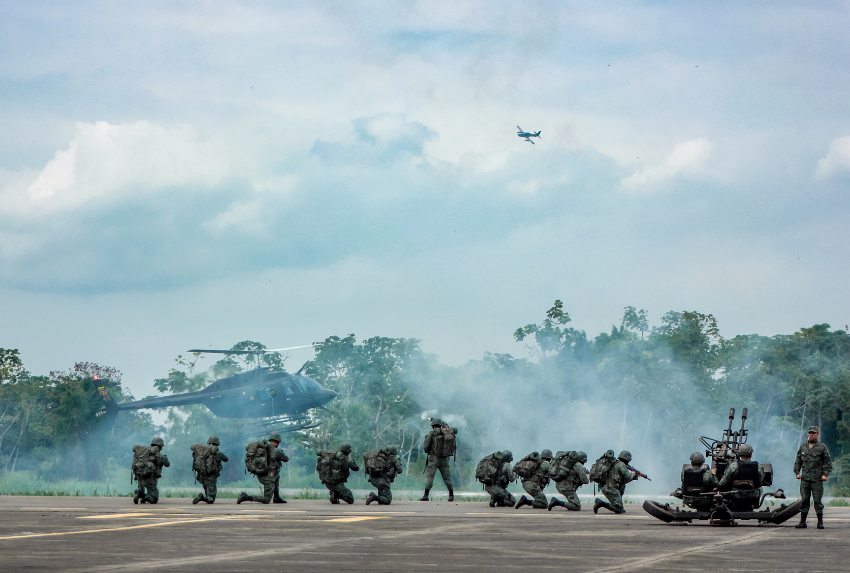Germany has recently witnessed a disturbing increase in violent attacks across several major cities. These incidents have raised alarms among national security experts, particularly as they seem to coincide with sensitive political moments and may be linked to foreign influence. One of the most pressing concerns for German authorities is the possible involvement of hybrid warfare, a strategy combining conventional military tactics with cyber-attacks, disinformation campaigns, and covert actions. The recent rise in violence in Germany has fueled speculations about the role of foreign powers, particularly Russia, in orchestrating or influencing these attacks. In this article, we will explore the concept of hybrid warfare, examine its potential application in Germany’s security challenges, and discuss how the country might respond to these evolving threats.
What Is Hybrid Warfare and Why Is It Important?
Hybrid warfare is a term that has gained increasing attention over the past decade, particularly in the context of modern geopolitical tensions. Unlike traditional warfare, which involves direct military engagement, hybrid warfare blends multiple strategies to achieve political and strategic objectives. This might include conventional military force, cyber-attacks, disinformation campaigns, and other covert actions aimed at destabilizing a country or region without the need for formal declarations of war.
The goal of hybrid warfare is to undermine a nation’s stability, create division, and influence political outcomes. One of the most striking features of this type of warfare is its ability to operate below the threshold of traditional military engagement, allowing foreign actors to destabilize countries while avoiding confrontation. For Germany, which is at the heart of European politics, the threat of hybrid warfare is particularly alarming as it targets not only physical security but also the information environment and the political landscape.
Could Russia Be Involved in Germany's Attacks?
As Germany grapples with the rising threat of hybrid warfare, there are growing concerns that Russia may be actively involved in some of the recent violent incidents. Russia’s involvement in hybrid warfare is not a new topic. Over the past few years, there have been numerous reports suggesting that Russia has used hybrid warfare tactics to influence political processes in Europe, including cyber-attacks on election infrastructure, disinformation campaigns, and efforts to sow discord within societies.
In the case of the Mannheim knife attack in May 2024, the investigation has revealed potentially significant connections to hybrid warfare. Authorities discovered that, in the days leading up to the attack, there were suspicious internet searches made from Russia. These included searches for terms like “terror attack in Mannheim” and “Michael Stürzenberger stabbed,” both of which are directly linked to the attack that targeted an anti-Islam activist and resulted in the death of a police officer.
The fact that these searches were traced back to Russia has led to suspicions that foreign powers may have been involved in gathering intelligence or even influencing the events. Digital intelligence experts have pointed out that the searches appear highly coordinated and not random, suggesting a deliberate attempt to monitor or even provoke violence. The rise of hybrid warfare means that cyber tools and internet surveillance are often used to gather intelligence and facilitate attacks, making this a highly sophisticated form of interference.
How Do These Attacks Affect Germany’s Security Landscape?
The increasing prevalence of hybrid warfare has profound implications for Germany’s security landscape. Germany is a leading democracy in Europe and one of the key players in the European Union. Therefore, any destabilizing actions—whether physical attacks or information campaigns—are likely to have significant repercussions for the stability of the region as a whole. Each of the recent attacks in German cities, such as the firebombing of parcels at a DHL cargo hub in Leipzig and the fatal stabbing in Mannheim, occurred just before critical political events, such as elections. This timing suggests that the perpetrators of these attacks may have been attempting to influence the political climate in Germany.
These actions, which coincide with elections, also point to the growing role of hybrid warfare as a tool to destabilize democracies. By fostering fear, division, and chaos, foreign actors can manipulate public opinion, making it more difficult for citizens to trust their political institutions. If these attacks are indeed part of a larger hybrid warfare strategy, Germany must recognize the seriousness of this threat and adapt its security policies accordingly.
Moreover, hybrid warfare is not just limited to physical attacks. It also includes the use of digital technologies, such as social media manipulation, fake news, and online propaganda. These tactics can create confusion, spread misinformation, and amplify existing divisions within society. For Germany, which has faced challenges in managing immigration and political polarization, the risks of hybrid warfare tactics are especially concerning.
What Should Germany Do Next?
As German authorities continue their investigation into the potential involvement of hybrid warfare in these attacks, it is clear that the country needs to take a more proactive and comprehensive approach to counter this growing threat. There are several key steps that Germany should consider in order to better protect itself from the increasing risks associated with hybrid warfare.
First, Germany must enhance its cybersecurity capabilities. As hybrid warfare increasingly relies on cyber-attacks to gather intelligence and disrupt critical infrastructure, Germany’s defense agencies must invest in stronger defenses against cyber threats. This includes strengthening the protection of election systems, government databases, and communication networks from potential foreign interference.
Second, Germany must improve intelligence sharing both within the country and with its international partners. The rise of hybrid warfare means that attacks are often multifaceted and may involve both physical and digital elements. To effectively combat this, Germany needs to collaborate closely with other European countries and intelligence agencies to share information and respond quickly to emerging threats.
Finally, Germany must focus on educating its citizens about the dangers of hybrid warfare and how to recognize disinformation and propaganda. Public awareness campaigns are essential in ensuring that citizens are not easily manipulated by foreign actors seeking to destabilize the political environment. By fostering a more informed public, Germany can reduce the impact of online misinformation and other covert tactics used in hybrid warfare.
How Can Germany Mitigate the Impact of Hybrid Warfare?
One of the most critical steps in mitigating the impact of hybrid warfare is for Germany to develop a robust national strategy for defending against these tactics. This strategy should include improving public sector coordination, developing stronger international alliances, and investing in emerging technologies that can help detect and counter hybrid threats in real time. Additionally, Germany should take a more proactive stance in addressing hybrid warfare as part of its foreign policy, ensuring that it is prepared to respond to potential threats from outside the country.
Conclusion
The threat of hybrid warfare is real, and it is growing. As Germany faces rising violence and political instability, the country must adopt a comprehensive strategy to counter foreign influence and interference. By recognizing the role of hybrid warfare and taking proactive steps to strengthen its defenses, Germany can protect its citizens, maintain political stability, and safeguard democratic values in an increasingly interconnected and complex world. Hybrid warfare is not just a military concern but a multifaceted challenge that requires a coordinated response from all sectors of society, including government, business, and the public. For more information or new updates on this topic, please refer to the latest article.








